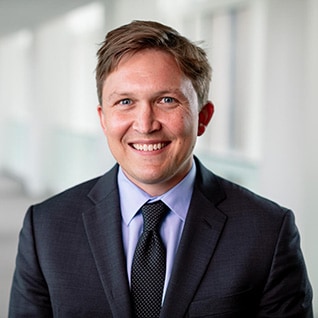/prod01/channel_2/media/mccms/content-assets/academics/residencies-and-fellowships/minimally-invasive-urologic-surgery-minnesota/department-and-faculty/aaron-potretzke-512X512-14252309-202409271153.jpg)
Aaron Potretzke, M.D.
Program Director
Dr. Aaron Potretzke is a minimally invasive endourologist. He specializes in upper tract urothelial carcinoma, renal cell carcinoma, and urolithiasis.
The Department of Urology at Mayo Clinic is committed to excellence in patient care, education, and research. We are a busy department that annually performs approximately:
You participate in clinical care through a preceptorship model.
To facilitate research endeavors, you are granted access to pre-existing databases for prostate cancer, bladder cancer, renal malignancies, and urolithiasis. In addition, faculty members have active National Institutes of Health grants in oncologic diseases, such as prostate cancer, and spore and stone disease (for example, the O'Brien Urology Research Center).

Welcome! We appreciate your interest in the Endourology and Minimally Invasive Urologic Surgery Fellowship at Mayo Clinic. A fellow in our program has the opportunity to work with several world-class surgeons and academicians. We offer depth and breadth in all of the sub-disciplines in minimally invasive urologic surgery.
Training in the Department of Urology at Mayo Clinic is based on a mentorship model. The fellow spends approximately nine continuous weeks with a designated mentor. The operations and clinical work are specific to one attending surgeon’s practice. The fellow is offered the opportunity to learn and practice the finest details of a given surgery (e.g. robotic partial nephrectomy, robotic prostatectomy, percutaneous nephrolithotomy) in a focused, dedicated experience. Graduating fellows are confident and accomplished as they embark on their own surgical practices.
The mentorship model also allows the fellow to learn how an individual surgeon runs a busy, well-rounded practice — including administrative duties, operating schedule, clinical responsibilities, research activities, and work-life balance.
Fellows in our department have access to robust registries, including those for renal cell carcinoma, prostate cancer, bladder cancer, and upper tract urothelial carcinoma. These registries are maintained prospectively by a dedicated nurse abstractor. The fellow has the opportunity to be as productive as is desired.
The aim of the Endourology and Minimally Invasive Urologic Surgery Fellowship at Mayo Clinic is to provide the fellow with the resources to successfully launch a prosperous career. We are very proud of our program, our department, and our city. We look forward to the opportunity to share our experience with those looking to refine their surgical, clinical, and academic expertise.
With best wishes,
Aaron Potretzke, M.D.
Program Director
The program is unique in that you get dedicated time with the faculty members who have diverse backgrounds and clinical foci, such as:
During the fellowship, mentoring is available from all faculty members. You may select a dedicated faculty adviser who will provide comprehensive educational advice and personal support. You meet with your adviser quarterly throughout the year to review progress and career goals, and ensure your educational goals are being met.
The department hosts three to five guest lecturers each year. These lectureships are arranged educational events frequently scheduled over the course of two days.
You may present clinical cases to visiting professors for additional education opportunities.